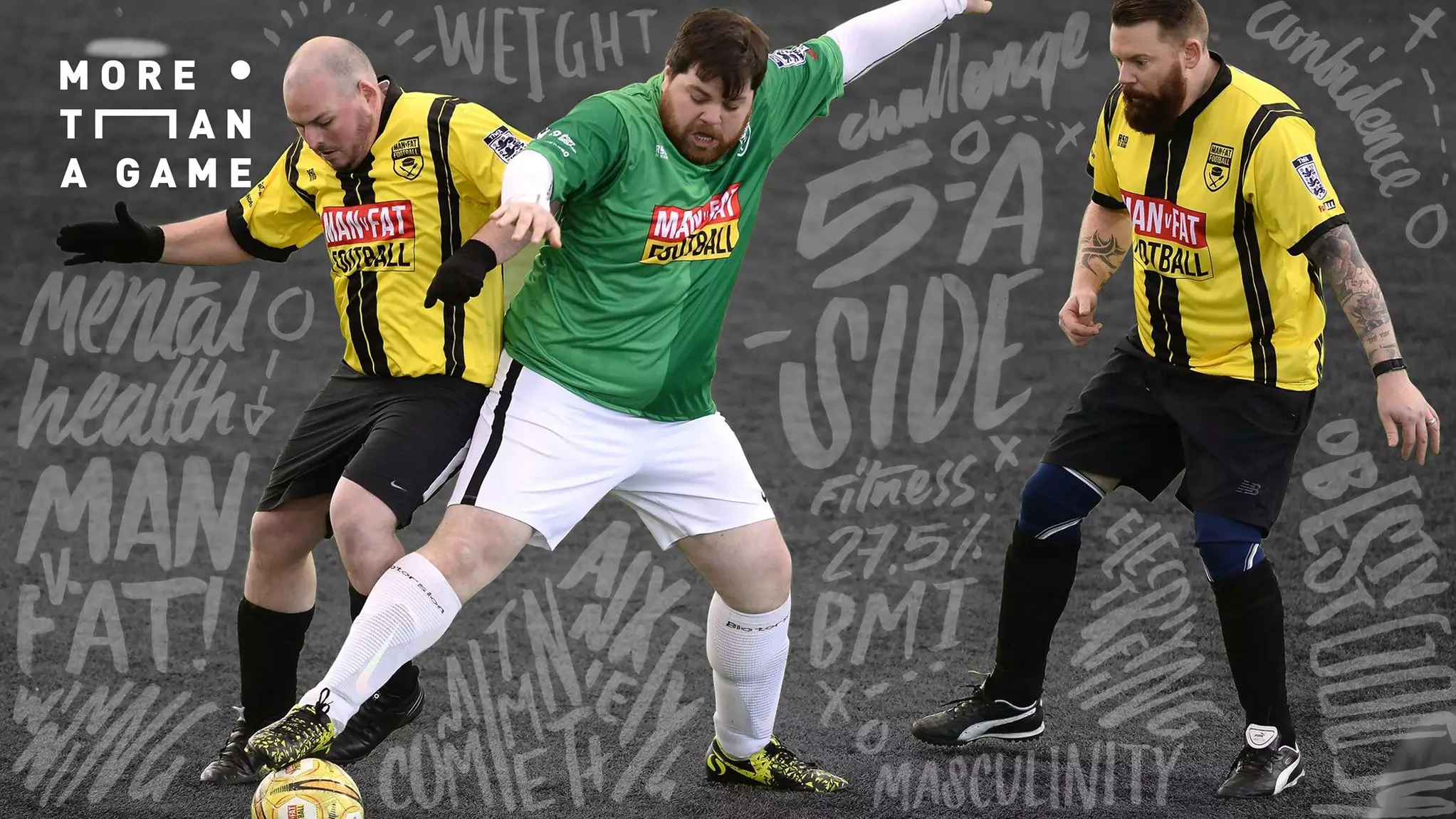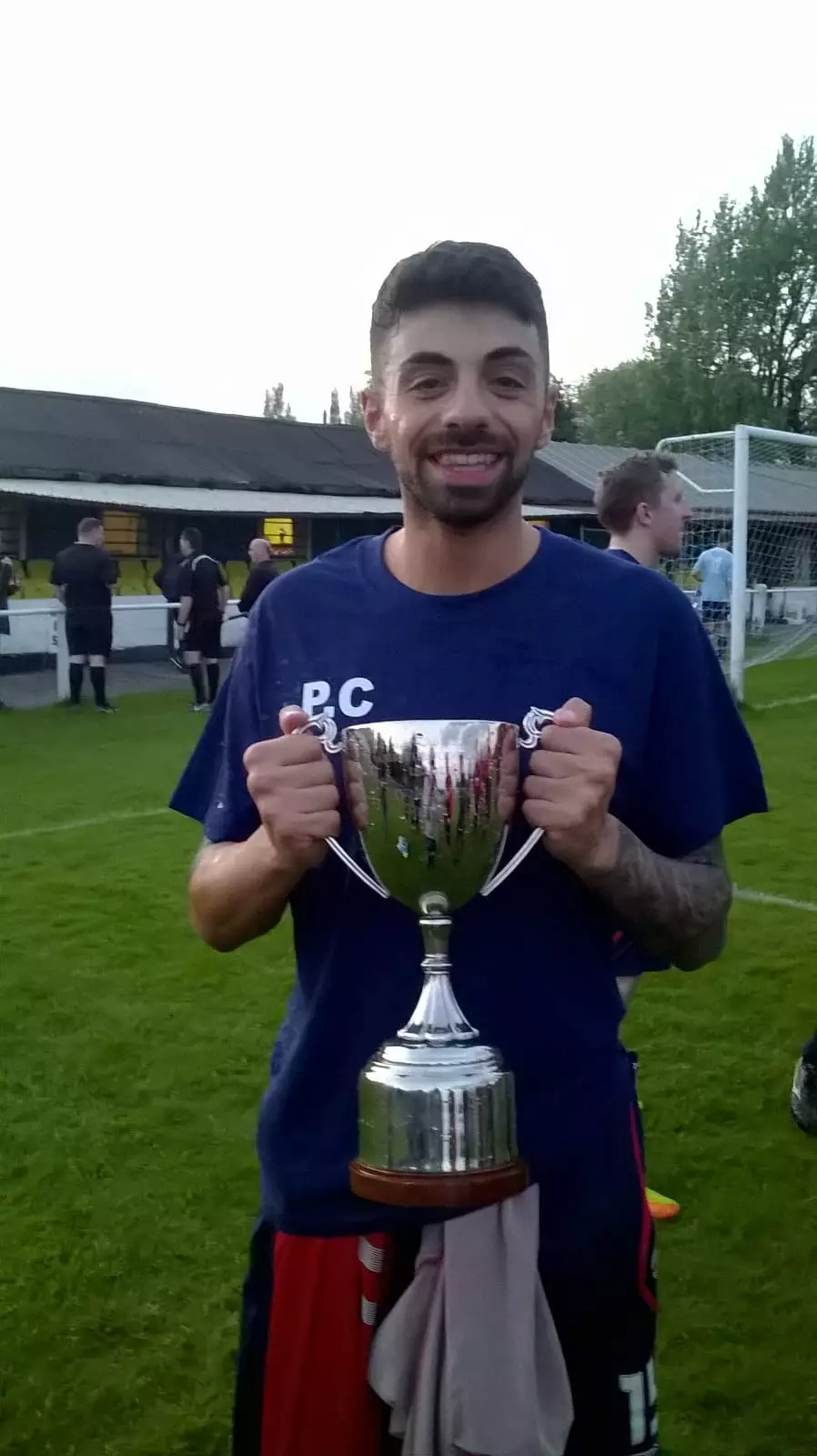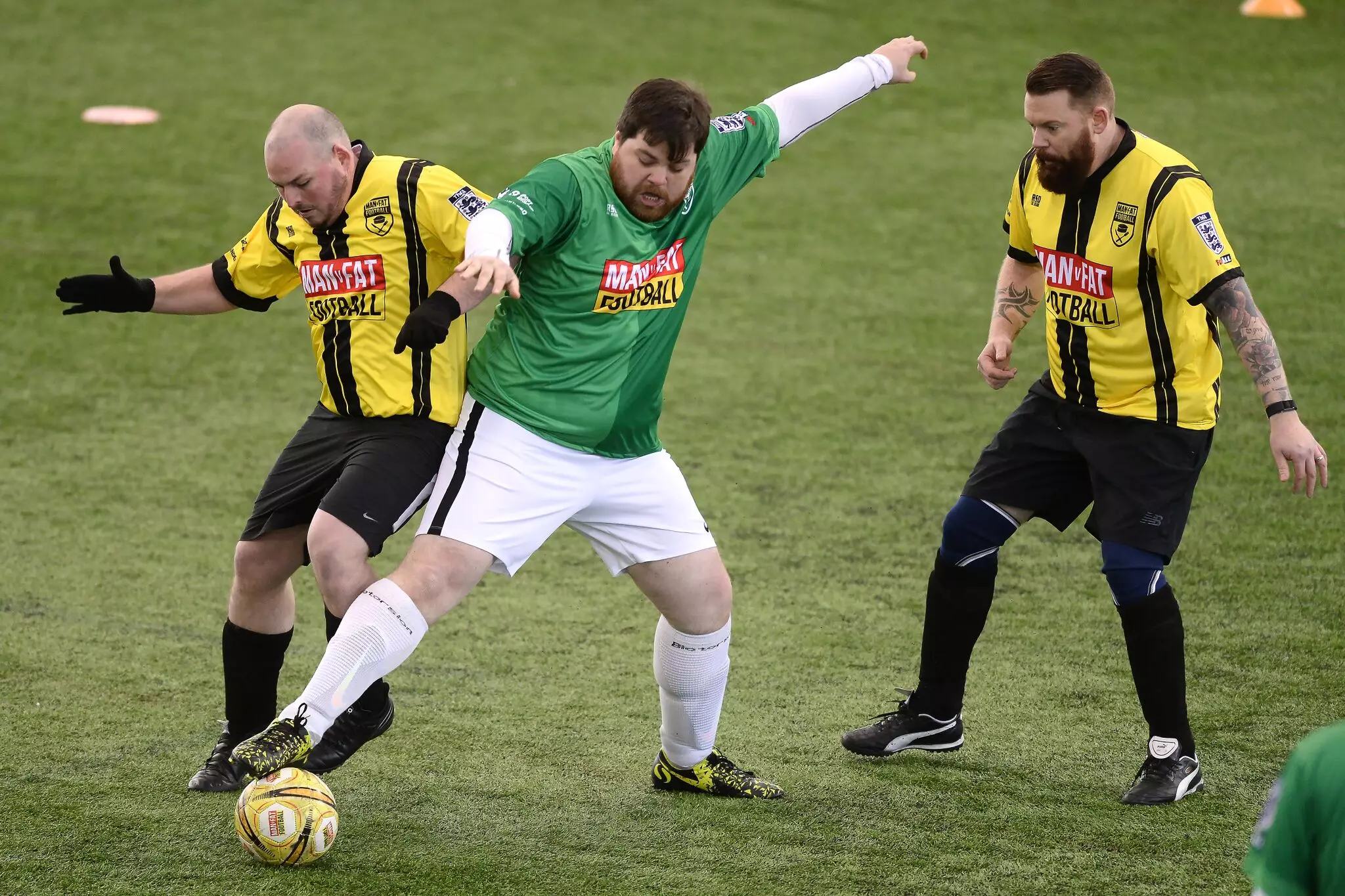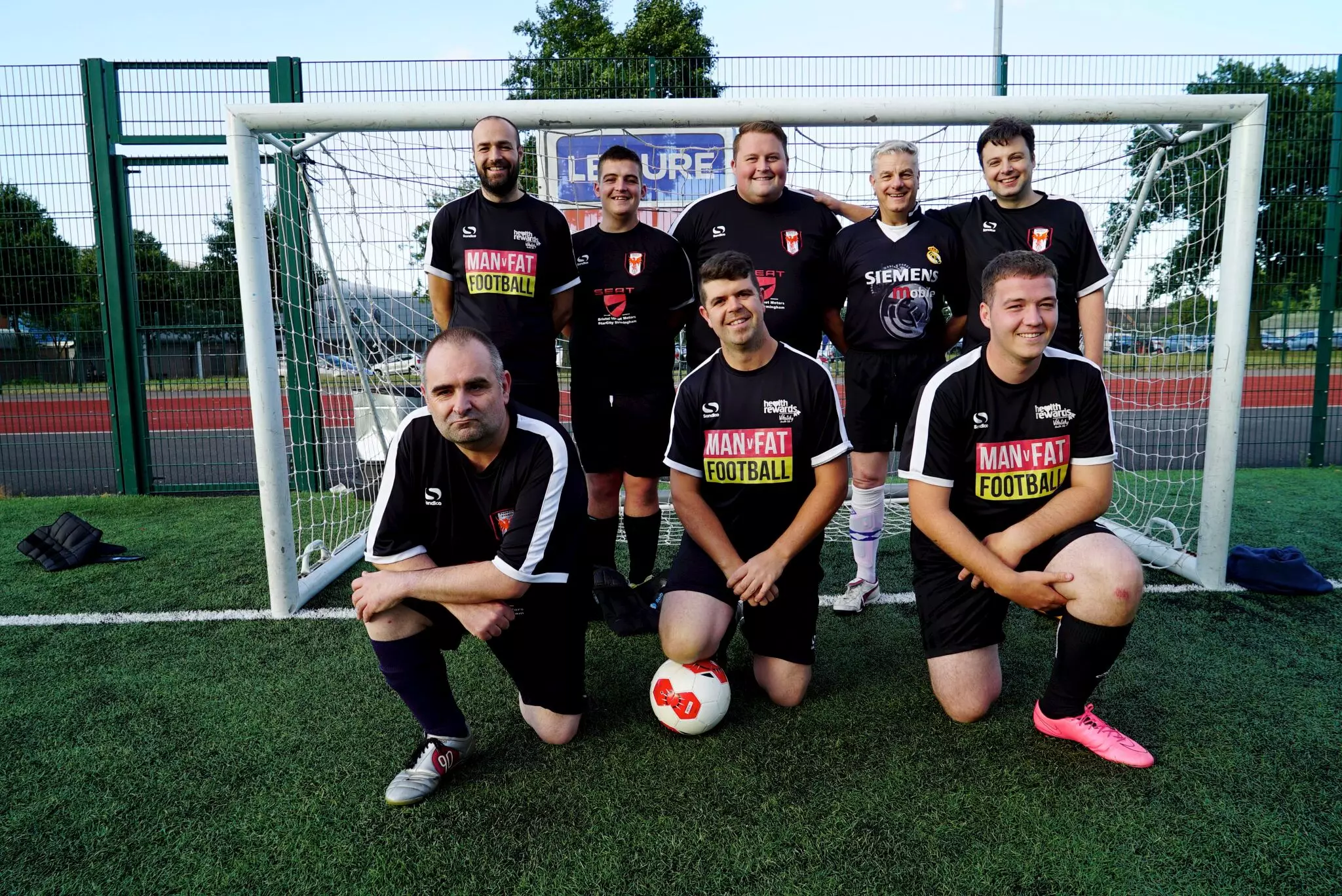
The reason most of us don't take up a sport is the commitment. Imagine having to give up your precious weekends in exchange for a competitive match or having to miss that one episode of Corrie every week because you must train with your side.
But with the recent shocking mental health statistics around men, it's more important than ever they find some form of regular exercise, regardless of how busy the diary may look.
Thankfully, there's a rising popularity in five-a-side football among males, an extremely accessible and high-octane sport, which is enjoyable, relieves stress, and improves fitness.
Advert
Meet these three men who have found a great deal of help through five-a-side, each with their own unique tale. Pietro Capitelli, a dietetic assistant, had to take a break from his semi-professional 11-a-side career because of mental health issues.
"Because I was so young, I didn't realise what was happening to me. Luckily, I managed to get help from a friend who I played with. He noticed a lot of the symptoms of depression and anxiety, and would always be there to talk," Capitelli says.

Anxiety is a very overwhelming condition. Everything can seem like a massive black hole, not least because of the stigma around men talking about the issue. To do so is seen as weak, and so men tend to keep it to themselves.
Advert
"I choose not to tell people about my anxiety because when you feel so low you think no one will understand. It can be hard for me to socialise when I am so down and anxious, but five-a-side just seems to be the bridge to getting back to myself. I play five-a-side now roughly three or four times a week."
Andrew Shanahan conceptualised the renowned Man v Fat company after putting on a sizable 84lbs amount of weight from his work as a food journalist. It sounds like a glorious job, but one, he says, that did no favours to his waistline and self-esteem.
"It really affected my confidence. I would be very down, didn't want to do any activity at all, and be really concerned about going to the gym. I was totally naïve as to the effects of food. I joined Weight Watchers and Slimming World, but it didn't work. That's nothing against the organisations, but it's more orientated around women. There seems to be a lack of education for us men; even by going to a doctor, they will tell you just to eat less," Shanahan states.
Shanahan feels that there is a cultural problem around obesity in men, that somehow masculinity teaches males they should eat as much as possible. So he thought up Man v Fat as a way of combating this.
Advert
"The real tragedy for me was there was nothing out there that provided support for men. I thought that there should be, so I did a crowdfunding campaign for Man v Fat. After two weeks we raised about £9000 - and the campaign even got support from celebrities like Jamie Oliver."

Man v Fat has become so popular that it's even gone international, with centres opening in Germany and as far as Australia. The success of Man v Fat could be down to the way the particular way they run their sport, putting the well-being of the players first, with everything you'd typically associate with sport coming second.
"Whenever someone first joins five-a-side or even starts to exercise in general, you'll find that they'll be quite scared. When I first started, I thought I might die. In Man v Fat, to stop this, we allow new members to join initially as a non-playing player, however, they can still contribute to their team by losing weight and hitting targets regularly," Shanahan says.
Advert
Five-a-side may appear like a minuscule version of the football, but research shows the health benefits are largely superior, owing to the close-quartered environment and electrifying speed of the game. And this, of course, is great news for those wanting to both enjoy themselves with their mates and burn fat - an idea that the very foundation of Man v Fat is based on.
"There are 14-week leagues and you can only join if your BMI (Body Mass Index) is over 27.5. But if you start with us and go under this number, we'll still let you play. All players weigh in before a game, and they score bonus goals as a result of how much weight they've lost, or if they have hit targets during the week. However, there're also punishments if you put on weight, and you'll score an own-goal for your team.

Ronan O'Shea is a journalist who found five-side as a way to relieve himself of the hardships of work.
Advert
"I try to play often. It's a good way of getting out of the house if I've been at home all day working. I find it a useful stress relief and, of course, it's great exercise," O'Shea explains.
O'Shea, however, warns of some of the problems that could be faced by someone who wants to start a competitive sport like five-a-side but who has low-confidence, a reminder that all team-based sports come with a degree of pressure.
"As someone who suffers from low self-esteem and anxiety, on occasions I've come away feeling worse than when I started if I've played very poorly. I'm not particularly good at football, so I've found that the feeling that I've 'let everyone down' rears its head, even if no one has openly criticised me, or at least not other than in the moment."
"As such, I think it's really important for someone thinking of doing team sports for mental health reasons to consider how it could backfire."
For more information, visit https://manvfat.com/ Twitter: @ManvFat
SPORTbible's campaign More Than A Game tells the stories about football and its power beyond the pitch. Find out more here.
Featured Image Credit:Topics: more than a game, Football News, Football, Mental Health